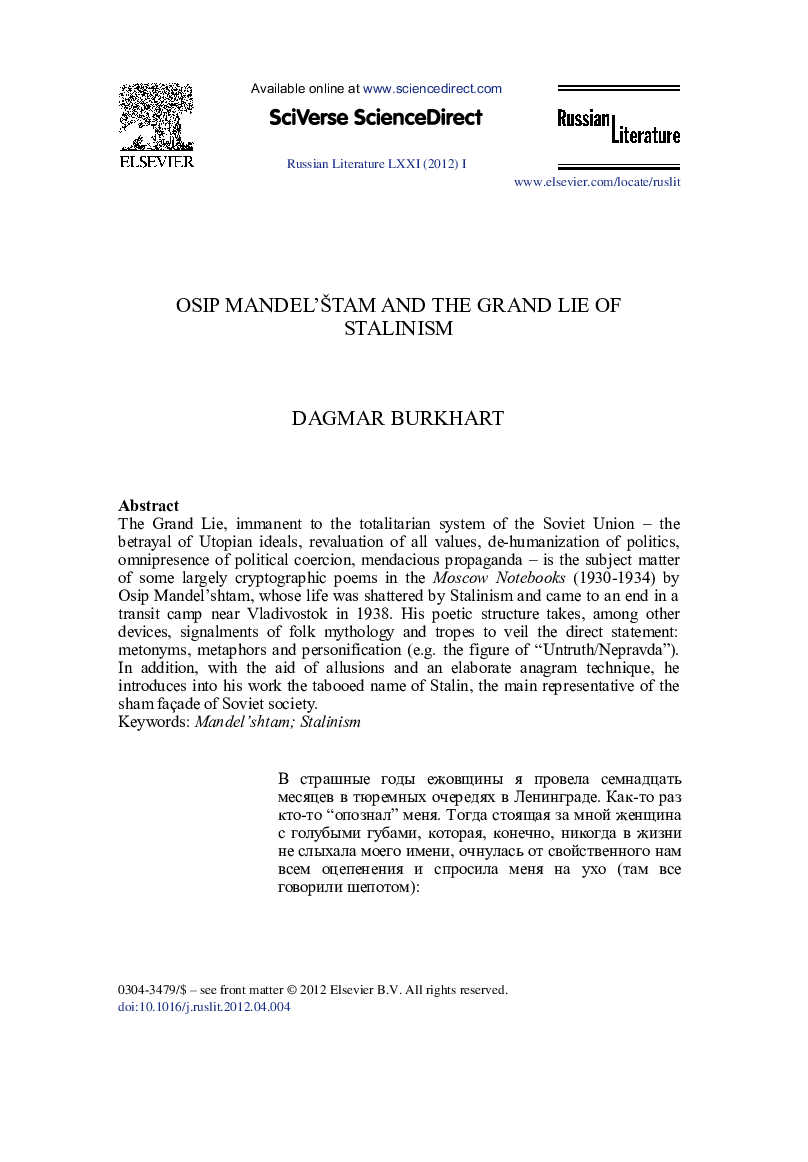| Article ID | Journal | Published Year | Pages | File Type |
|---|---|---|---|---|
| 1103967 | Russian Literature | 2012 | 22 Pages |
The Grand Lie, immanent to the totalitarian system of the Soviet Union – the betrayal of Utopian ideals, revaluation of all values, de-humanization of politics, omnipresence of political coercion, mendacious propaganda – is the subject matter of some largely cryptographic poems in the Moscow Notebooks (1930–1934) by Osip Mandelʼshtam, whose life was shattered by Stalinism and came to an end in a transit camp near Vladivostok in 1938. His poetic structure takes, among other devices, signalments of folk mythology and tropes to veil the direct statement: metonyms, metaphors and personification (e.g. the figure of “Untruth/Nepravda”). In addition, with the aid of allusions and an elaborate anagram technique, he introduces into his work the tabooed name of Stalin, the main representative of the sham façade of Soviet society.
